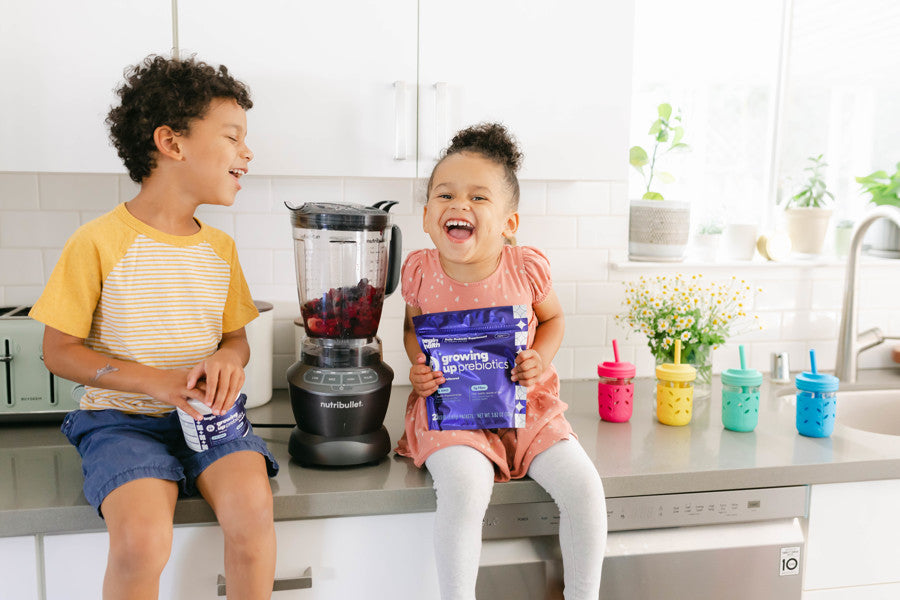Your Cart is Empty
Continue shoppingHow to Know If Your Kid Needs a Stool Softener (or Something Else)
Medically Reviewed by May Zhu, RDN | Published April 16, 2025
share this article
 Constipation in kids can be confusing. Is it just a phase? Do they need a stool softener? Or is there another, more natural way to help?
Constipation in kids can be confusing. Is it just a phase? Do they need a stool softener? Or is there another, more natural way to help?
If your little one is having trouble pooping, you’re not alone. Constipation affects up to 30% of children worldwide [1]. But knowinghow to respond is key to getting their digestion back on track without over-relying on medications.
What Counts as Constipation?
Before reaching for a remedy, it’s important to recognize what constipation actually looks like in kids. Some signs include:
-
Fewer than 3 bowel movements per week
-
Hard, dry, or painful stools
-
Holding in poop or “withholding” behavior
-
Visible discomfort or straining during bathroom trips
-
Accidents or stool leakage in potty-trained kids
If these symptoms have lasted more than a couple of weeks, it may be time to explore treatment options.
When a Stool Softener Might Help
Stool softeners like polyethylene glycol (PEG 3350) are often recommended for children with moderate to severe constipation. They work by drawing water into the colon to make stools softer and easier to pass.
According to clinical guidelines, pediatricians may recommend stool softeners to break the cycle of withholding, fear, and painful poops, especially if dietary changes haven’t worked. [2]
However, stool softeners don’t treat the underlying issue. They offer temporary relief, not long-term digestive health. That’s why many families use them alongside other interventions and aim to wean off them over time.
When Something Else Might Work Better
If your kid’s constipation is mild, infrequent, or related to diet, you might not need a stool softener at all. Here are alternative approaches that can often help:
More Fiber (Especially Prebiotic Fiber)
Fiber adds bulk and softness to stool. Prebiotic fibers like inulin or Human Milk Oligosaccharides (HMOs) also feed beneficial gut bacteria, which play a major role in regularity [3].
Hydration Support
Water helps soften stool and move it through the colon. If your kiddo is constipated and also not drinking much, this could be the culprit.
Daily Movement
Even a short walk or active play can stimulate the digestive system. Kids with sedentary routines are more likely to experience sluggish bowels [4].
Gut-Friendly Supplements
Prebiotics and probiotics can support digestive health from the inside out. Several studies have shown their potential to improve stool consistency and reduce constipation in kids [5].
Summary
There’s no one-size-fits-all solution. Stool softeners can be a helpful short-term tool especially if your kiddo is in distress but long-term relief often comes from building healthy gut habits.
If you’re unsure what’s best, check in with your pediatrician. And if your kid is frequently constipated, don’t just treat the symptoms. Strengthening the gut is key to lasting digestive comfort.











